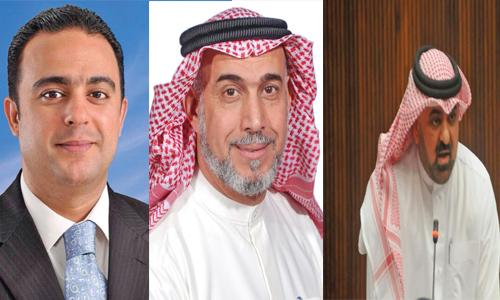‘Coordination is the key to curb radicalisation’
The best way to minimise the threat of terrorism is to continue the coordinated approach between government and communities to stop radicalisation occurring in the first place, says Parliament Deputy Speaker Ali Al Aradi.
“And the second thing is to identify and take action against individuals involved in terrorist activities... Bahraini security authorities are already doing that successfully and at a wider scale,” he added.
He was speaking to DT News in the aftermath of the recent report published by the well-known global think tank ranking Bahrain the first among the Gulf Cooperation Council (GCC) countries for being under threat of terrorism.
The Institute of Economics and Peace, a think tank based in Sydney, New York and Mexico, has compiled the Global Terrorism Index 2015 in which Bahrain with a score of 4.871 out of 10 stands 31st globally from among 162 countries while Saudi Arabia got the 43rd place with a score of 4.006, the United Arab Emirates (UAE) in the 101st place with 1.045 and Kuwait in 123rd with 0.019 score. According to the new research report, Oman and Qatar do not face any threat from terrorism.
Aradi said that terrorism was not the issue of a few countries alone. Clearly, all the countries were at risk of terrorist threats, not only in the region, but more widely in the whole world.
He said that throughout 2015, security authorities had made multiple arrests of individuals linked to terrorist groups such as Hezbollah and the Iranian Revolutionary Guards. Successful operations have included seizures of firearms and explosive materials intended for use in terror attacks against security personnel and innocent civilians. The authorities have also taken action against individuals considering travelling to Syria or Iraq - or those returning from such trips – as witnessed in October when a large number of arrests were made.
“The Ministry of Interior is working in cooperation with religious leaders and citizens to ensure that all public places, particularly the places of worship, are protected at peak times,” said the deputy speaker.
MP Jamal Dawood said that the best strategy to minimise the danger of terrorism in Bahrain was to catch all those people who had been trained by Iran for creating disturbance inside Bahrain.
He said that the situation was not as alarming as the report suggested. On the other hand, after the slump of oil prices Bahrain was facing a lot more problems in the economic sector but the security situation was getting better now and the investors were feeling safer to invest than before.
“What the Interior Ministry and other responsible institutions have done to protect Bahrain form internal as well as external dangers so far is quite good but the Iranian side needs more attention,” he said.
“All the Iranian-trained people must be caught and punished,” he suggested.
MP and Vice Chairman Services Committee Mohammed Al Maarfi said that Bahrain needed to continue working simultaneously on the two approaches internally – strengthening the internal unity of the Bahraini community and improving the economy.
Maarfi said that Bahrain was the homeland of both Shias and Sunnis and they must sit together in all the matters and if one section of the community had some complaints they must be resolved internally.
“Bring more investments to Bahrain,” he said, adding, “When prosperity prevails everything else will subside automatically”.
Photo Caption: Deputy Speaker Ali Al Aradi , MP Jamal Dawood , MP Mohammed Al Maarfi
Related Posts

